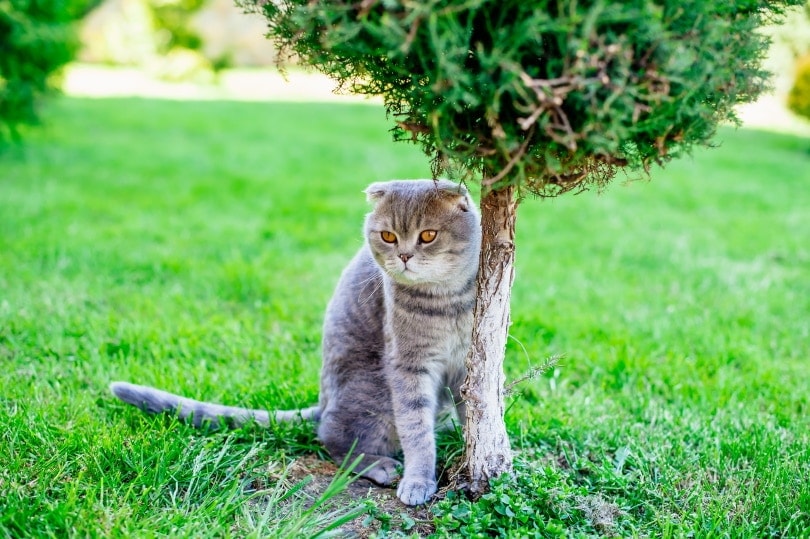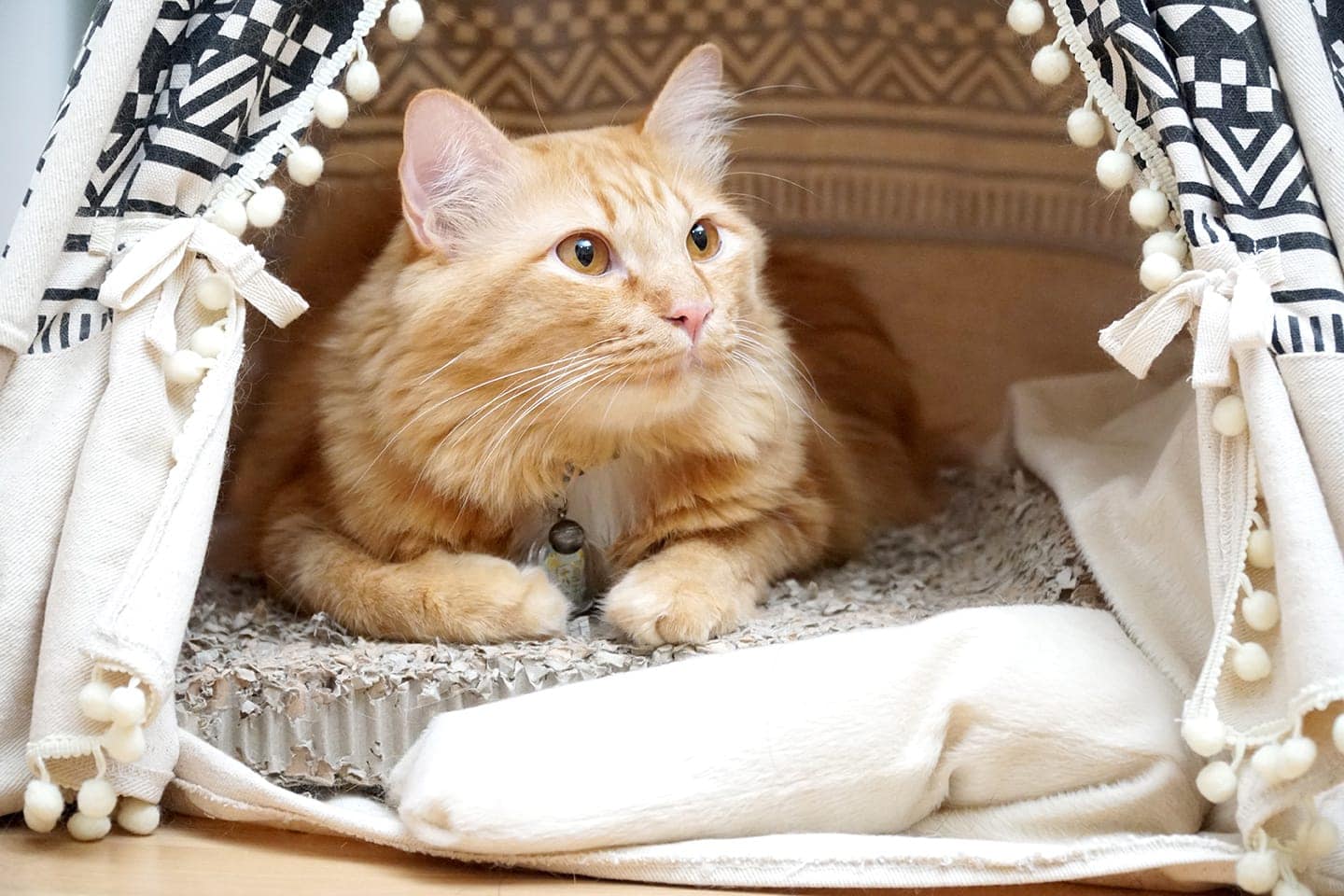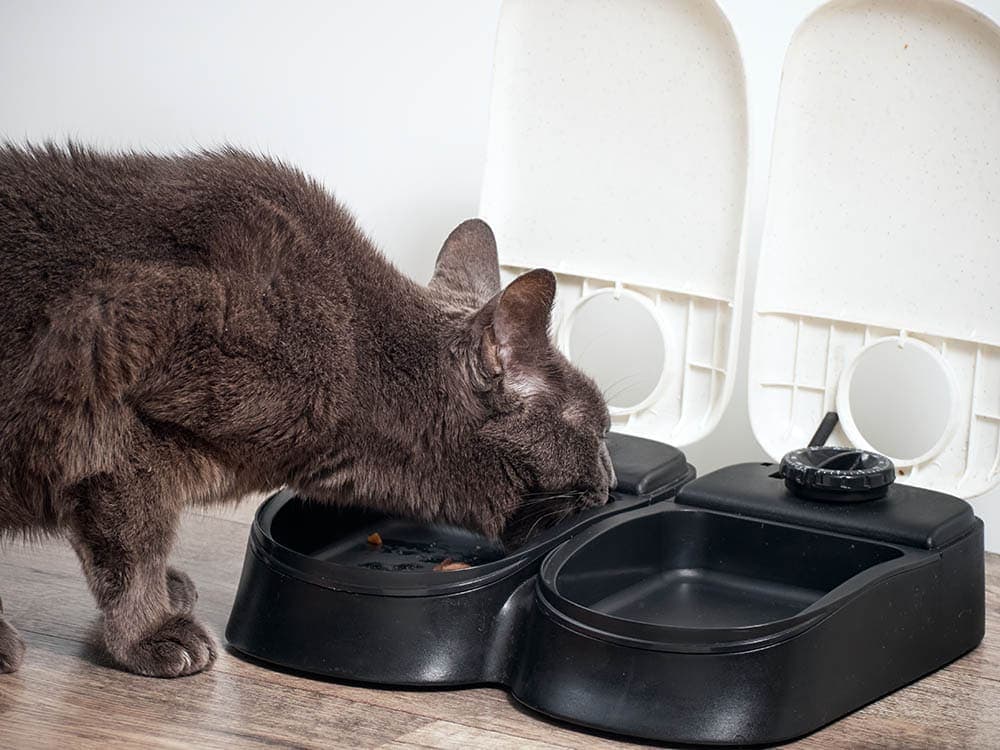Can You Vacuum Cat Litter? Important Facts & Tips
Updated on
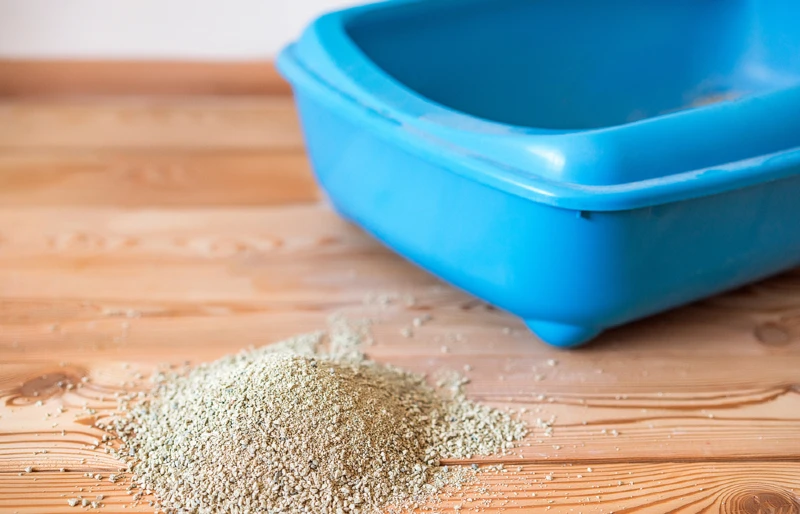
Litter box cleaning is arguably one of the most frustrating parts of being a cat owner. Not only is cleaning it a stinky chore but certain types of litter are known for tracking throughout the home. Litter tracking occurs when litter particles stick to your cat’s paws and fur, winding up in every nook and cranny. What’s a cat owner to do to address the litter that will inevitably be spread throughout their home?
A vacuum can be a great line of defense; however, they may become damaged by litter in some circumstances. Read on to learn more.
Are Vacuums Okay to Use on Litter Messes?
Vacuums are okay to use occasionally to tackle small litter-tracking messes throughout your home. If you decide to use one for cleaning up your pet’s litter scatter, we recommend having a dedicated vacuum for this purpose. You can buy a handheld style option or even a shop vac, which will be much heavier duty and longer-lasting.
It is important to know that some problems may arise if you use your regular vacuum cleaner too often for litter control purposes.
- Sharp edges may damage the machine. Some litters, especially clay varieties, can be sharp. These sharp edges can inevitably damage the components of your vacuum, such as the hose and the filters.
- Clumps can become stuck. If you vacuum clumps of urine or feces, they can get stuck in the hose or adhere to your canister’s walls. This can be impossible to reverse and may render your vacuum useless.
- Filters may get clogged. Clay litters are notoriously dusty, and sucking up too much at one time can cause the filter to become plugged due to the dust.
- Distribution of smells. Using the litter vacuum for cleaning the rest of your home may result in unpleasant odors being distributed throughout your home.
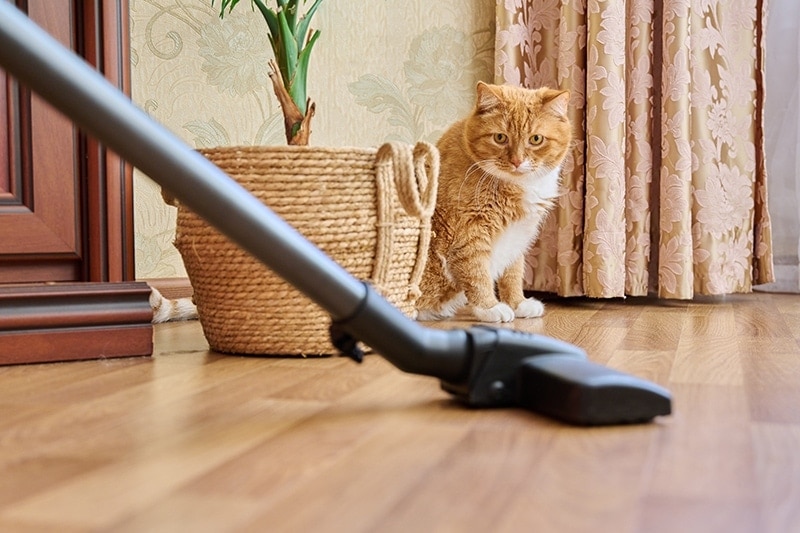
The 4 Tips for Cleaning Litter Messes
If you don’t want to use your regular vacuum cleaner to tackle your kitty’s litter scatter, you still have options.
1. Buy a Dedicated Litter Vacuum
As mentioned above, buying a dedicated vacuum for your pet’s litter is your best bet. This will ensure your regular vacuum will remain in tip-top shape and not disperse unpleasant smells throughout your home.
Shop vacs are designed to tackle harder-to-handle messes and have stronger sucking power than most traditional vacuums. The hoses are wide so the small litter particles you’re picking up won’t be an issue.
2. Sweep the Messy Area
Sweeping is a great way to address little tracking issues if you have non-carpeting flooring. You can even try sweeping up the majority of the mess and using your vacuum to get in the hard-to-reach places like the cracks between floorboards.
It is a good idea to have a dedicated broom for sweeping litter to reduce the spread of any fecal matter.
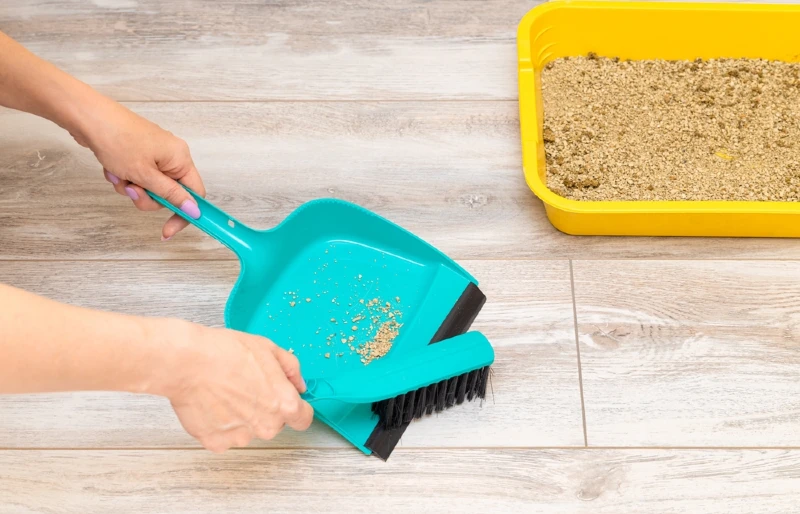
3. Use a Carpet Rake
If you have carpeting, it’s probably not just your cat’s litter you have to contend with. Their fur is likely embedding itself within your carpet fibers without you even realizing it. These cheap tools are super versatile as they can loosen dirt, dust, litter, and hair particles from your rugs and carpet. We like the FURemover Pet Hair Rubber Broom with Carpet Rake and Squeegee as it attracts pet hair like a magnet on both carpets and hardwood flooring and can also get out the cat litter simultaneously.
4. Buy a Litter Mat
Another great line of defense against litter scatter is a litter mat. These mats are designed to trap litter as your kitty jumps out of their box after doing their business. They are typically made of plastic with holes or fibers that will grab onto litter particles before they have a chance to track throughout your home.
Final Thoughts
A dedicated cat litter vacuum can be a great component in your defense against litter tracking. We recommend buying a separate machine to use specifically for this purpose to ensure you’re not accidentally destroying the vacuum you use for the rest of your home. It’s also not a bad idea to consider using several lines of defense, including carpet rakes, litter mats, brooms, and a vacuum, to get the best control over the litter situation in your space.
Featured Image Credit: Tanya Plotnikova, Shutterstock

